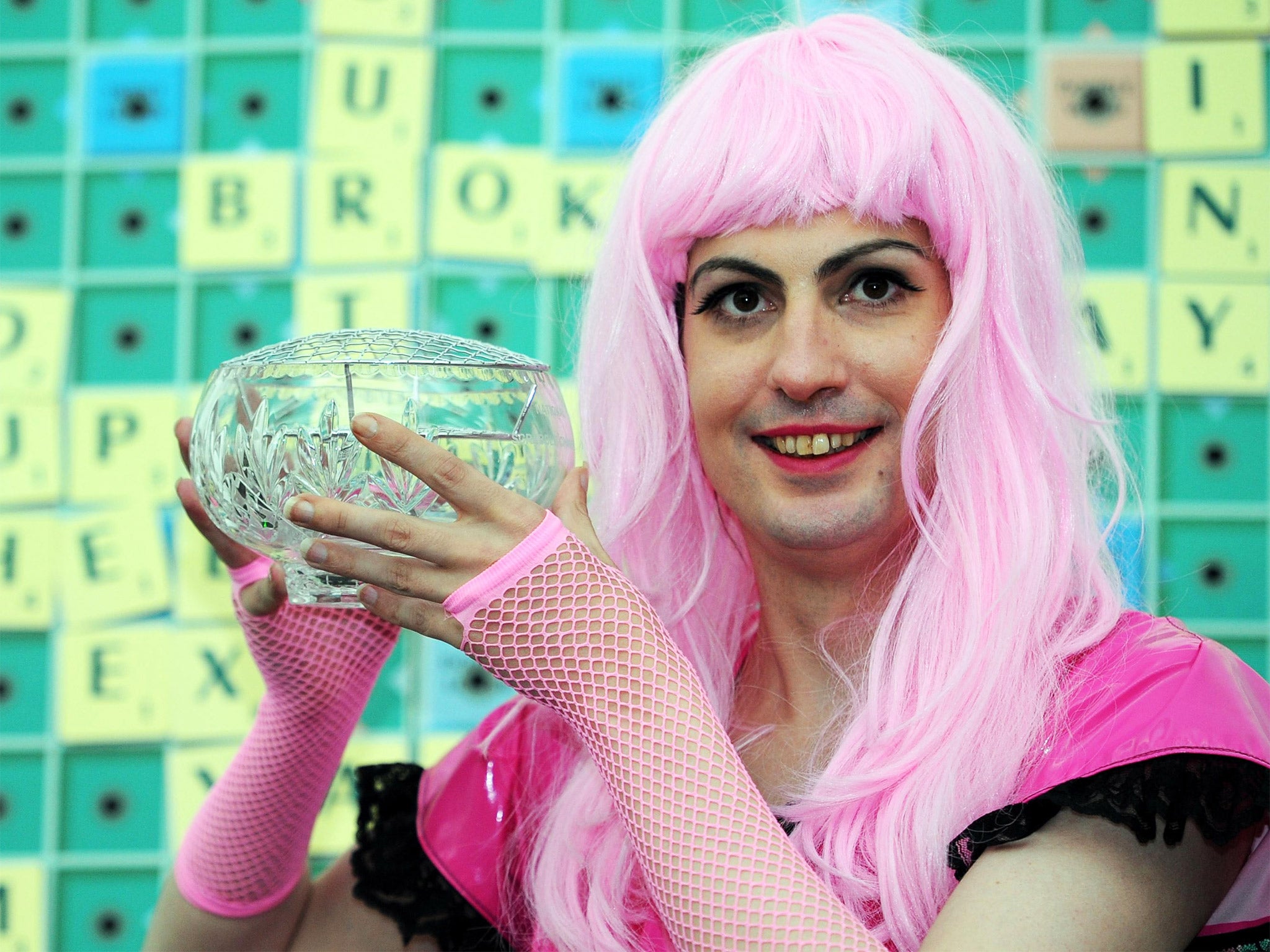Transgender woman killed herself after being taunted in street for being different, court hears
Scrabble champion Mikki Nicholson told psychiatric nurse she felt 'stigmatised'

A transgender woman who was a national Scrabble champion took her own life after receiving abuse for being different, an inquest has heard.
Mikki Nicholson, 36, told a psychiatric nurse that she “felt stigmatised” for being transgender and was being taunted in the street. She wanted to leave Carlisle where she was living because she hoped she would be less abused elsewhere, but had recently discovered that she would risk homelessness by moving.
The case illustrates the fatal consequences of intolerance towards transgender people in Britain - an issue that remains stubbornly widespread. The Metropolitan Police saw offences against transgender people soar by 44 per cent in 2014 with 95 crimes recorded, up from 66 in 2013.
Ms Nicholson, who was once ranked as the fourth best Scrabble player in the world, was born male but identified as a woman. She was receiving psychiatric treatment in the months before she was killed by a train on 7 November last year.
Earlier last year Ms Nicholson was treated at a psychiatric clinic, and then supported at home by community psychiatric nurse Clive Guyo. He said she had previously considered suicide after visiting Manchester as she was scared of returning to Carlisle.
Mr Guyo said: “She described Carlisle as hostile to people who are different. She spoke of facing verbal abuse while walking in the streets because of how she appeared to other people. Schoolchildren were often the worst for making fun of her and verbally abusing her.”
Mr Guyo said she clung to the belief that her life would be better if only she could leave Carlisle. “She had a negative view of Carlisle based on past experience,” he said. “She felt stigmatised.”
The inquest heard that Ms Nicholson wanted to move to Newcastle but was told she would be classed as “intentionally homeless” if she left her current flat, making it hard to find social housing elsewhere. She had no money for a deposit to rent privately.
In the five weeks before her death, she was not contactable, though Mr Guyo tried to visit and help her overcome her accommodation problem.
Rebecca Mellor, a close friend of Ms Nicholson’s since 2010 said: “Mikki was fiercely intelligent, exploring her gender identity, and had a vivacious character. She frequently felt at odds with the world because of her high level of intelligence [and] gender identity”
Coroner David Roberts concluded that Ms Nicholson had deliberately killed herself but that she had been well supported by the psychiatric services. Cumbria Partnership Trust, which provided psychiatric care, is now discussing providing specialist support for transgender people in north Cumbria as a result of the suicide.
The case illustrates the continued mental health toll of transphobic abuse. A recent survey for the LGBT mental health charity Pace found that 48 per cent of trans people under 26 had attempted suicide. In contrast, around 6 per cent of all 16-24-year-olds have attempted to kill themselves.
Margaret Unwin, chief executive of Pace, said: “There’s clearly much more awareness about trans people recently but the reality of living as a trans person in 2015 in this country is that it’s still quite a scary experience for a lot of people to live in a normal town in the UK.”
Tabloid reporting of Ms Nicholson’s win at the National Scrabble championships in 2010 mocked her as a man in dress, with one columnist insinuating under the headline “Why we’re all Scrabbling to put on a frock” that it was unseemly how many people were “cross-dressing”.
Ruth Hunt, chief executive of Stonewall, said: “There’s a direct link between how the media talks about trans people and people’s attitudes. The media has an incredible ability to use its power for good and transform attitudes towards trans people - but also has the ability to perpetuate negative stereotypes and cause harm.”
Subscribe to Independent Premium to bookmark this article
Want to bookmark your favourite articles and stories to read or reference later? Start your Independent Premium subscription today.
